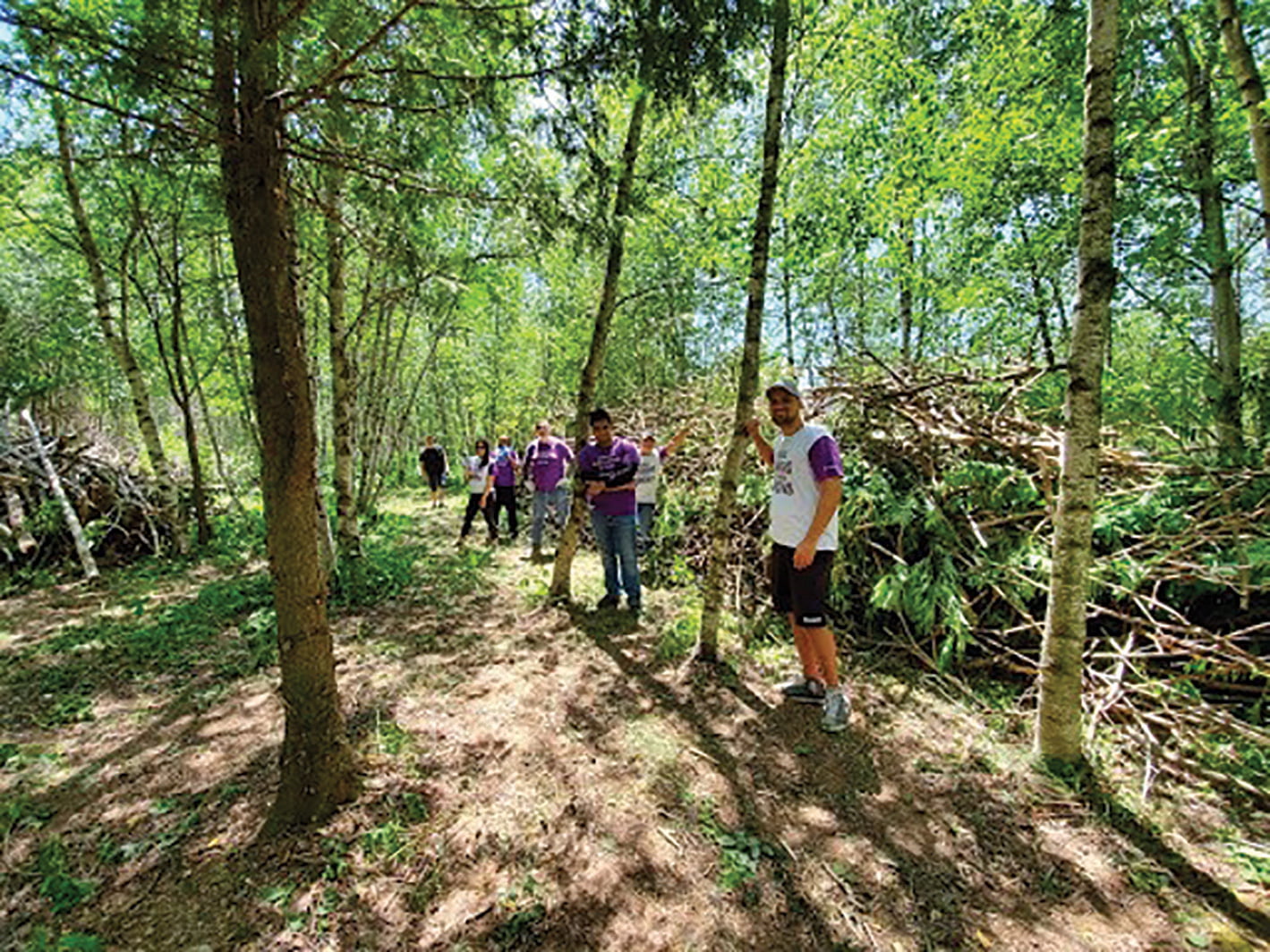
TELUS's strategy for leveraging innovation for environmental sustainability and community health includes encouraging people to safely enjoy nature.SUPPLIED
Committing to carbon neutrality may seem like a fairly recent narrative adopted by corporations to reduce human impacts on climate change. In truth, leading companies like TELUS have been making strides in reducing emissions for more than a decade. In 2011, TELUS initiated its first set of long-term energy and greenhouse gas (GHG) emission reduction goals and surpassed them in early 2019, ahead of schedule. TELUS has since set new transformational targets to have its operations become net carbon neutral by 2030; to procure 100 per cent of its electricity requirements from renewable sources by 2025; and to improve its energy efficiency by 50 per cent from 2020 levels by 2030.
“In telecom, people don’t think we have a large footprint,” says Geoff Pegg, head of sustainability and environment with TELUS as well as a member of the Clean50 2021 and 2018. “In fact, many of our solutions help people minimize their own footprints. But we have to make sure we are doing our part to address climate change. More connectivity, more data, transitioning to 5G – all of this is power intensive. We need to be as efficient as possible.”
To this end, TELUS has pioneered its own strategy for addressing its power needs sustainably. Through Power Purchase Agreements (PPA), TELUS partners with new renewable energy facilities to enable incremental renewable energy capacity to Alberta’s electricity grid in addition to supporting its operational and customer power requirements.
“In terms of our Canadian peers, our plan is unique. We’re not just taking the approach of buying offsets,” says Mr. Pegg. “We’re actually building capacity. With several energy management initiatives as well as real estate optimization, it’s a balanced approach where you’re not just buying your way out.”
In 2017, TELUS signed a long-term PPA to procure all of the renewable electricity from a 15-megawatt solar facility in Brooks, Alberta. This facility adds approximately 24,000 megawatt hours of renewable electricity annually to Alberta’s electricity grid.

The commitment to ESG leadership at TELUS includes supporting vulnerable community members.SUPPLIED
In 2019, TELUS signed another PPA to procure renewable wind energy from a grid-scale wind farm, with no government subsidies, becoming the first corporation in Canada to do so. This long-term agreement is scheduled to begin generating energy in early 2022. In 2020, TELUS executed two additional PPAs for solar-powered electricity, also to begin production in early 2022. These investments in renewable energy help TELUS sustainably grow its core business as well as increase the resources of the overall system.
“It took a lot of learning and negotiation over a long period of time,” says Mr. Pegg. “After the original project worked, we decided to go for it. If we’re going to use some green energy, we might as well do all of it. And it wasn’t just about lowering emissions, although that was a big driver. It made economic sense for our company to do it. You can make responsible financial decisions that have environmental and social benefit. These projects will create jobs that are ongoing. They are big economic investments.”
It’s no wonder the accolades keep rolling in to acknowledge TELUS’s continued commitment to sustainability and social capitalism. In 2020 alone, TELUS was recognized on the Wall Street Journal’s list of Top 100 Sustainably Managed Companies, the Dow Jones Sustainability World Index, the Dow Jones Sustainability North American Index, Corporate Knights’ Best 50 Corporate Citizens Canada, as well as the Top 100 Most Sustainable Corporations in the world and a Global Compact Network Canada’s SDG Accelerator Award. For 2021, it’s already been named as one of Canada’s Greenest Employers by the Canada’s Top 100 Employers project.
All of this to say, it makes good ecological and business sense for corporations to take urgent action to combat climate change and its impacts. TELUS demonstrates that it can be done in a way that helps grow its core business. “We’re really trying to walk the talk,” affirms Mr. Pegg. “On the governance side, we’ve been educating our board, and they’re also bringing sustainability matters to the table so we can continue to progress. We’re listening to our stakeholders and balancing our sustainability strategies against our business. It comes down to having the courage to innovate.”

Hands-on environmental initiatives.
SUPPLIED
GREEN PROGRAMS FOR GOOD
In addition to advancing overall sustainability goals, TELUS has several programs to help communities and the environment.
TREES FOR PAPER
For the paper and packaging that TELUS consumes, it offsets that use by planting trees in collaboration with Tree Canada. So far, TELUS has planted tens of thousands of trees in the Yunesit’in First Nation territory in B.C. and Oak River, Manitoba. TELUS has also set a goal to reduce paper and packaging consumption by 10 per cent year-over-year as well as source 100 per cent of purchased copy paper from tree-free sources.
AGTECH
By leveraging agriculture technology (AgTech) innovation and AI, TELUS Agriculture helps farmers and ranchers produce food for the world’s growing population more efficiently, safely and in a more environmentally responsible manner. For example, precision AgTech boosts a farmer’s ability to apply water, pesticides, and nutrients in exact quantities, only when and where necessary. This means fewer inputs, fewer wasted resources, less environmental impact and lower GHG emissions. It can vastly improve yields and productivity levels while minimizing impact on land.
POLLINATOR FUND
For entrepreneurs committed to transforming health care, caring for our planet, supporting responsible agriculture, and enabling inclusive communities, a new corporate impact investment fund at TELUS is driving social innovation by powering the next generation of startups that are building technology for good by connecting them with the capital and business resources they need to grow and thrive.
TELUS CERTIFIED PRE-OWNED PROGRAM
TELUS refurbishes and resells used customer smartphones, giving them a new home rather than adding to electronic waste. In addition, anyone can drop off a damaged or broken phone at a TELUS retail location and TELUS will recycle the devices safely.
To learn more, visit telus.com/sustainability.
Advertising feature produced by Randall Anthony Communications with Canada’s Clean50. The Globe’s editorial department was not involved.